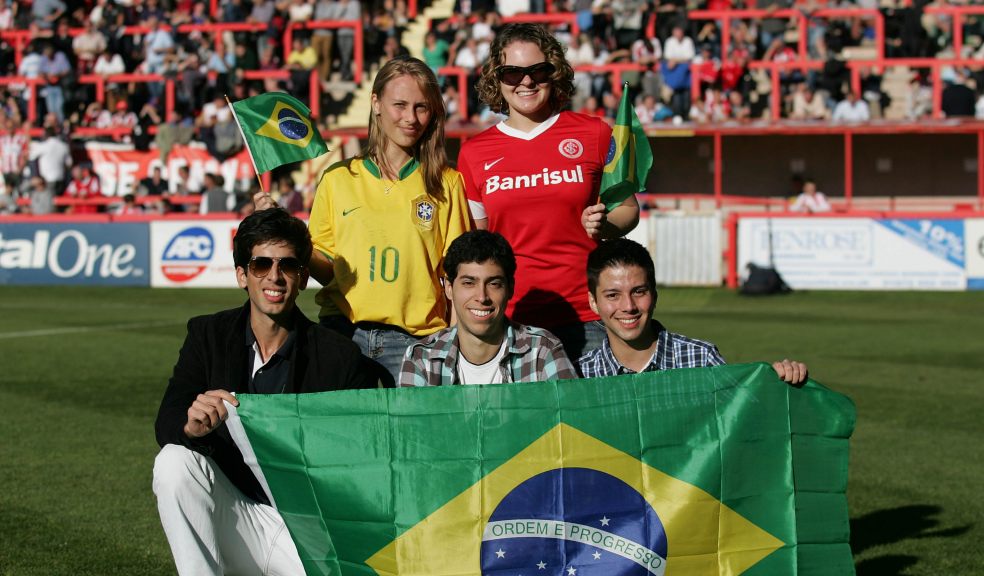
Grecians welcome the boys (and girls) from Brazil!
The first football team to have played a match against Brazil marked its historic ties with a special welcome to visiting students.
The Grecians were the first team to play the Brazilian national team in a match that took place in Rio de Janeiro in 1914.
When Exeter City played Port Vale recently, the club used the day to celebrate its links with Brazil.
Among the special guests invited to enjoy the game was a group of Brazilian students newly arrived at the University of Exeter .
The students were given free entry to the match and then invited down onto the pitch to be introduced to the crowd, which gave them a warm and friendly reception.
Several of the students who attended the match have been awarded scholarships by Santander Universities to study at the University of Exeter as part of the Science Without Borders initiative.
Felipe Soares, from the Universidade Federal do Rio Grande do Sul, said: “It was so amazing see a little piece of Brazil in the match and witness this link between Exeter and my country, and I am looking forward to see Exeter City playing in Brazil in 2014.”
André Seri, from the Universidade de Sao Paulo, studying Engineering and Management, said: “I feel honoured to have been at the match. 98 years ago the Brazil team faced Exeter and I'm delighted to have the opportunity to meet this great team.”
Exeter City’s Bruce Henderson said: “It seemed the natural thing to do to make these young people welcome in our city and help us celebrate our links with their country. I can vouch for how friendly the welcome is when one visits Brazil and so it was nice to see our crowd give them such a good round of applause. We hope they enjoyed our club and will come back for another game.”
Dr Shaun Curtis, the University’s Director of International Exeter, said: “Exeter is delighted to host 13 Brazilian students this year under the Science Without Borders scheme, made possible by the generous support of Santander Universities. Santander's support enables Brazil's young scientists to experience our campuses and communities in Devon and Cornwall, and to build deep and sustainable links between our two countries for years to come.”

















